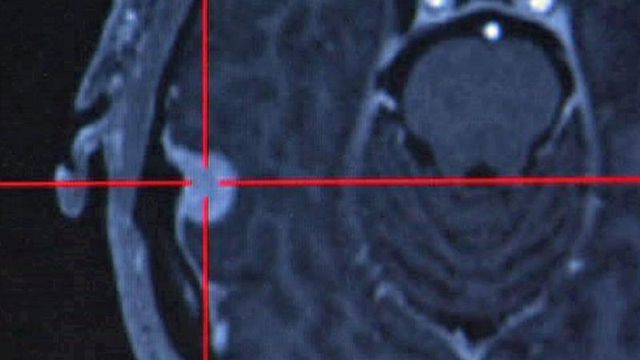GPS technology helps brain surgeons
A new tool can help physicians get rid of the guesswork and make more accurate cuts during brain surgery.
Posted — UpdatedMRI and CAT scans can help doctors see problems, including tumors, but finding and removing those problems without damaging healthy tissue can be a dicey operation.
Neurosurgeon Dr. Bruce Jaufmann, with First Health Moore Regional Hospital in Pinehurst, said that a device called the Stealth Station is making brain surgery safer.
The Stealth Station uses the same technology as global-positioning satellite systems to track where a probe's tip goes. Much as the military used GPS technology to identify targets, neurosurgeons use it to identify the precise locations of tumors or aneurysms.
"Initially, we have an MRI scan. That MRI is plugged into a computer which gives us a three-dimensional image of where everything is within a person's skull," Jaufmann said.
The computer directs him and other surgeons along the safest, most direct route to the tumor.
"It makes the surgery much safer, (with) a lot less complications, much smaller incisions, faster healing time," Jaufmann said.
Patients spend less time in intensive care and have a shorter hospital stay. Since the technique uses less radiation than X-rays, it's safer for the staff and surgeon, as well as the patient.
The Stealth Station is also often used in orthopedic surgery on the spine.
• Credits
Copyright 2024 by Capitol Broadcasting Company. All rights reserved. This material may not be published, broadcast, rewritten or redistributed.





